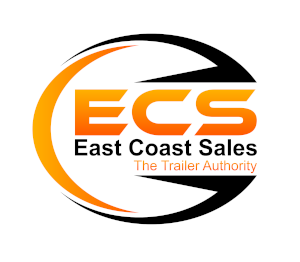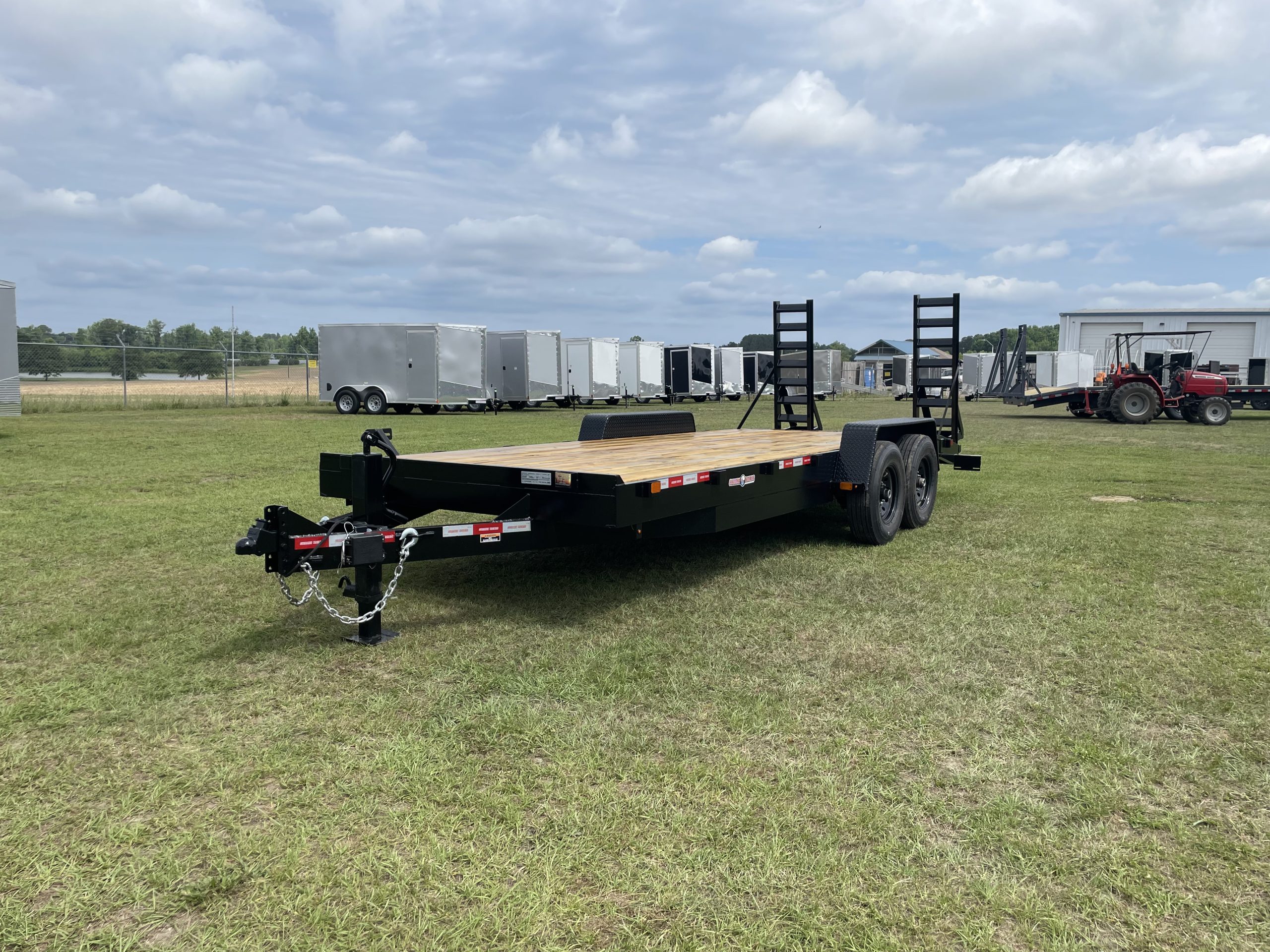Single vs dual axle trailer in Raleigh North Carolina
When choosing between a single axle trailer and a dual axle trailer in Raleigh, North Carolina, the decision largely depends on your specific hauling needs, the type of load you’re carrying, and how you plan to use the trailer. Both types have their advantages and limitations, so understanding their key differences will help you select the right trailer for your needs.
Here’s a breakdown of the single axle vs. dual axle trailers, including the pros and cons of each:
Single Axle Trailers
A single axle trailer features one axle and two tires, making it the simpler and more compact option. These trailers are typically lighter and easier to maneuver compared to dual axle trailers.
Key Features of Single Axle Trailers:
- Axle Configuration: One axle with two wheels.
- Weight Capacity: Typically up to 3,500 lbs, though smaller versions may have lower weight limits.
- Size: Common sizes include 4′ x 6′, 5′ x 8′, and 6′ x 10′.
- Simplicity: Fewer moving parts mean less complexity and potentially lower maintenance.
Pros of Single Axle Trailers:
- Cost-Effective:
- Single axle trailers tend to be cheaper than dual axle models, making them a great option if you’re on a budget or only need to haul lighter loads.
- Maneuverability:
- Easier to maneuver in tight spaces. With just one axle, these trailers are more agile when backing up or parking, making them ideal for residential areas or situations where space is limited.
- Lower Maintenance Costs:
- Fewer components means less to maintain. You have one set of tires, one axle, and one brake system to keep an eye on, which can reduce repair and maintenance costs over time.
- Weight and Tow Vehicle Compatibility:
- Since single axle trailers are typically lighter, they place less strain on your tow vehicle. They are a good match for smaller cars, SUVs, or trucks with lower towing capacities.
- Storage:
- These trailers are generally smaller and more compact, so they take up less space when stored in your driveway or garage.
Cons of Single Axle Trailers:
- Lower Weight Capacity:
- The primary limitation of single axle trailers is their lower weight capacity. If you need to haul heavier loads, a single axle trailer may not be sufficient, as it can typically handle only up to 3,500 lbs.
- Less Stability:
- Single axle trailers are more prone to swaying, especially at higher speeds or when loaded improperly. This can make towing less stable, particularly when carrying loads near the weight capacity limit.
- Less Durability for Heavy Use:
- If you’re regularly hauling heavy equipment, construction materials, or multiple vehicles, the single axle trailer might wear out more quickly and may not be as durable as dual axle models.
Dual Axle Trailers
A dual axle trailer features two axles and four wheels. This configuration is typically used for carrying heavier loads, providing greater stability and durability for a wide range of hauling tasks.
Key Features of Dual Axle Trailers:
- Axle Configuration: Two axles with four wheels.
- Weight Capacity: Typically 3,500 lbs to 14,000 lbs or more, depending on the size and design.
- Size: Common sizes include 6′ x 12′, 7′ x 14′, and 8′ x 20′.
- Durability: Built to handle more wear and tear, especially for frequent, heavy-duty use.
Pros of Dual Axle Trailers:
- Higher Weight Capacity:
- Dual axle trailers are built for heavier loads, often with a tandem axle design that allows the trailer to carry up to 10,000 lbs or more, depending on the specific trailer.
- Stability and Control:
- With two axles, these trailers provide significantly better stability while towing, especially with heavy or bulky loads. They are less prone to swaying, providing a smoother and more controlled towing experience.
- Better weight distribution means that the load is spread over both axles, reducing the likelihood of overloading one axle.
- Improved Braking:
- Many dual axle trailers come with brakes on both axles, which provide better stopping power, especially when hauling larger or heavier loads. This makes dual axle trailers much safer when it comes to braking, particularly on highways or when driving in traffic.
- Durability:
- These trailers are generally more durable and capable of handling the demands of daily use, such as hauling construction equipment, vehicles, or large quantities of materials.
- With the added axles, there is less strain on each individual axle, which helps increase the overall lifespan of the trailer.
- Towing Comfort:
- The added axles help provide better tracking behind the tow vehicle, reducing the effect of road conditions or crosswinds. This makes towing more comfortable, particularly on long trips or at higher speeds.
Cons of Dual Axle Trailers:
- Higher Cost:
- Dual axle trailers are generally more expensive than single axle trailers, both in terms of initial purchase price and maintenance costs. More tires, axles, and other components mean higher upfront costs and ongoing maintenance.
- Less Maneuverability:
- While dual axle trailers are more stable, they are also less maneuverable than single axle trailers. They can be more difficult to navigate in tight spaces or when backing up, especially if you don’t have experience towing larger trailers.
- Heavier:
- Dual axle trailers are heavier than single axle trailers, which means they can put more strain on your tow vehicle. You’ll need a larger towing vehicle (e.g., a truck or SUV with higher towing capacity) to safely tow the trailer.
- Storage and Parking:
- Due to their larger size, dual axle trailers typically require more storage space. If you don’t have a large driveway or garage, parking and storing the trailer may be more challenging.
Single Axle vs. Dual Axle Trailer: Which One is Right for You in Raleigh, NC?
Choose a Single Axle Trailer if:
- You are hauling light loads (under 3,500 lbs).
- You don’t need the extra stability that comes with a dual axle.
- You need a more affordable option that is easy to maneuver and park.
- You don’t have a large tow vehicle or don’t need to haul heavy equipment regularly.
- You are looking for something compact and simple for occasional use, like moving furniture or hauling small trailers and lawn equipment.
Choose a Dual Axle Trailer if:
- You need to haul heavier loads (over 3,500 lbs).
- You require better stability and control for smoother towing, especially for larger or bulkier items.
- You are frequently transporting equipment, vehicles, or materials that demand greater durability and long-term reliability.
- You want better braking and towing comfort for highway driving or long distances.
- You have a suitable towing vehicle that can handle the increased weight of the trailer.
Conclusion:
Choosing between a single axle trailer and a dual axle trailer in Raleigh, NC largely depends on your hauling needs. If you’re looking for something light, affordable, and easy to maneuver for small loads, a single axle trailer is a great choice. However, if you’re transporting heavier items or need added stability, durability, and safety, a dual axle trailer would be more appropriate. Consider your budget, tow vehicle capacity, and typical cargo to make an informed decision that fits your needs.
When you need the very best trailer and only want 5 star customer service come visit us at East Coast Trailer Sales. We are the triangle’s premier trail sales specialist. We can help you select the perfect trailer for your needs and get you on the road quickly. To learn more visit us online at https://www.eastcoastsales.com/ or check out our social media at https://www.facebook.com/eastcoastsalesraleigh . To browse our inventory, please visit https://www.eastcoastsales.com/inventory/ .
To speak to an expert call us at (919) 661-1045 today.

